We Are All Murderers (1952)
“While offenders are murderers, they are also human.”
|
Synopsis: |
|
Genres, Themes, Actors, and Directors:
Review:
Indeed, We Are All Murderers is most definitely a “message film” — and the message is complex enough to warrant the creative treatment it’s given here. As the film opens, we see a harsh life of poverty being endured by Mouloudji and his brother (Georges Poujouly), and understand this is meant to show how Mouloudji has eventually developed such sociopathic indifference towards fellow humans: While Mouloudji seems too far gone to help, we wonder and worry about his younger brother, who disappears from the action for quite a while, but shows up again (crucially) later on: Will Poujouly meet the same fate as Mouloudji — or will society intervene to prevent the cycle of poverty, illiteracy, and violence from occurring once again? Meanwhile, the bulk of the storyline is taken up with showing us life inside Death Row, which is punctuated by boredom, temporary camaraderie, and the constant anxiety of not knowing when your time will be up. To that end, we briefly “meet” a few other prisoners throughout the span of the film, learning a little bit about what led each of them to this final point. A Corsican (Raymond Pellegrin), for instance, says, “I killed a person who transgressed. It was for honor.”: … while another man (Julien Verdier) is duly haunted from having killed his own baby. Another significant theme is how Mouloudji’s upper-class lawyer (Claude Laydu) has such incredible support on the home front, and was clearly “destined” for good things in life (in the same way Mouloudji never had a chance): Finally, we see plenty of compassion on the part of priests and prison guards, who (mostly) seem to carry out their jobs with resolve and dignity: While We Are All Murderers is at times a bit didactic, this can easily be forgiven in light of its unique approach and subject matter; it remains well worth a look. Notable Performances, Qualities, and Moments: Must See? Categories
Links: |
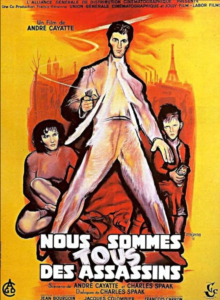
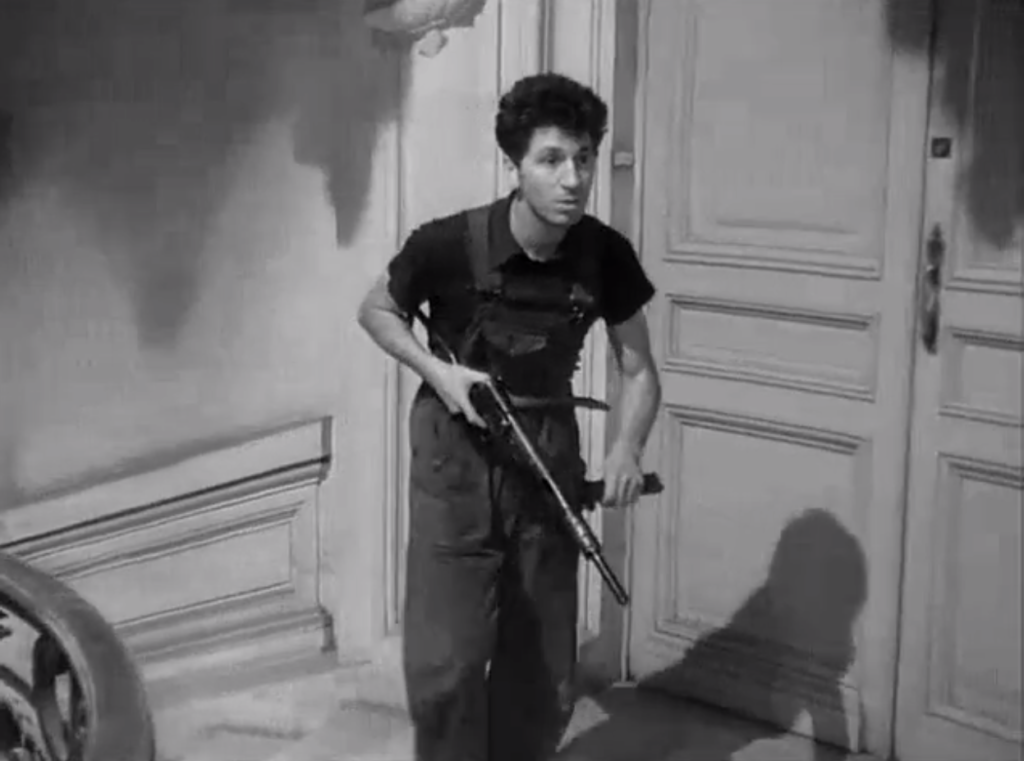
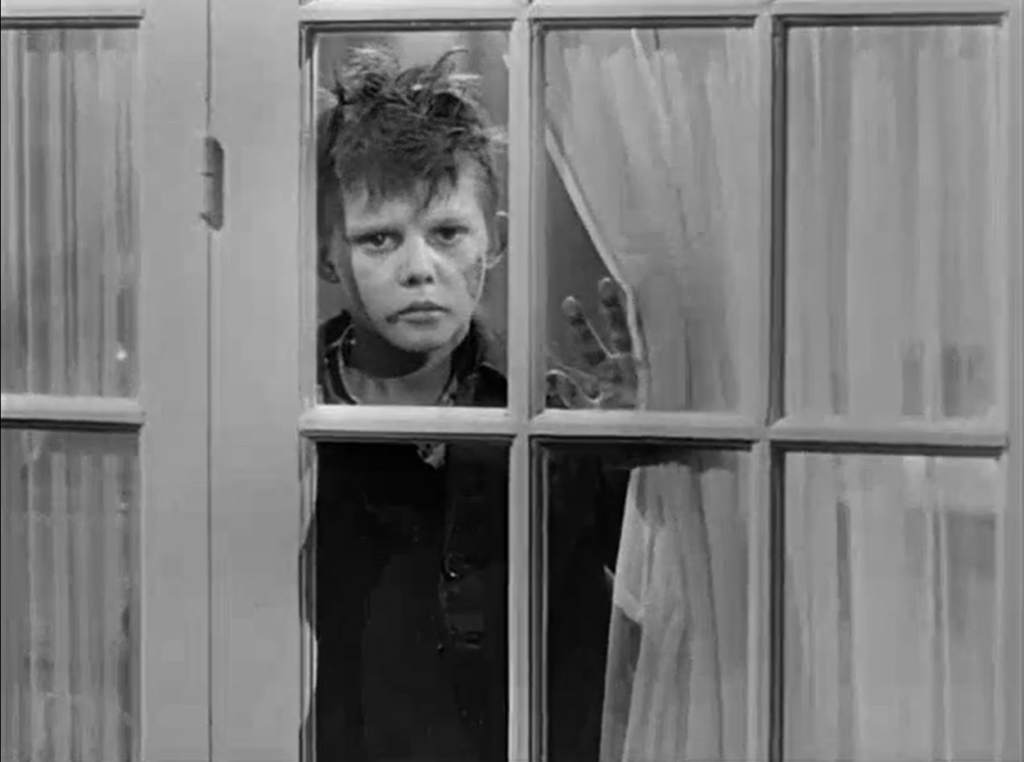
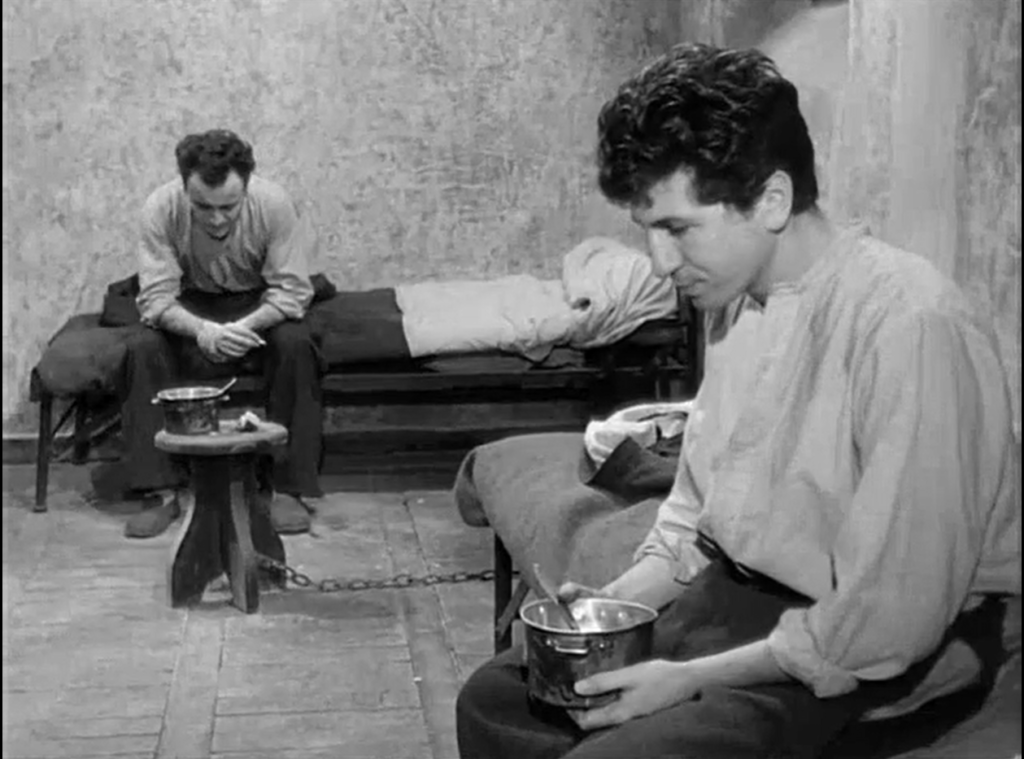
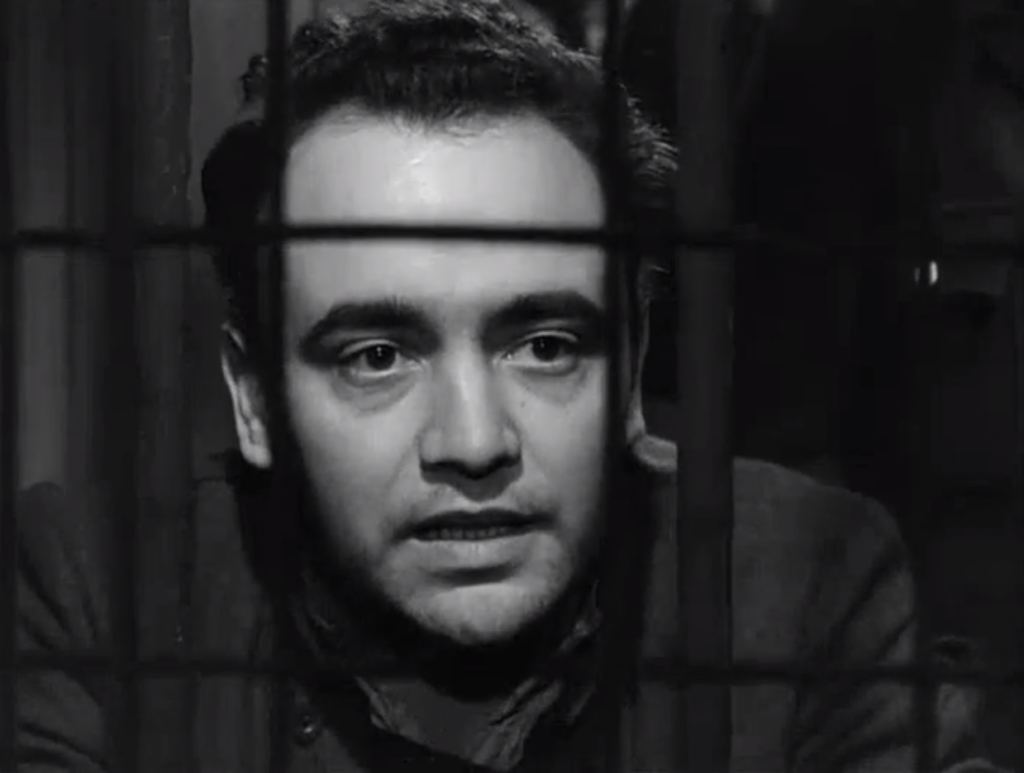
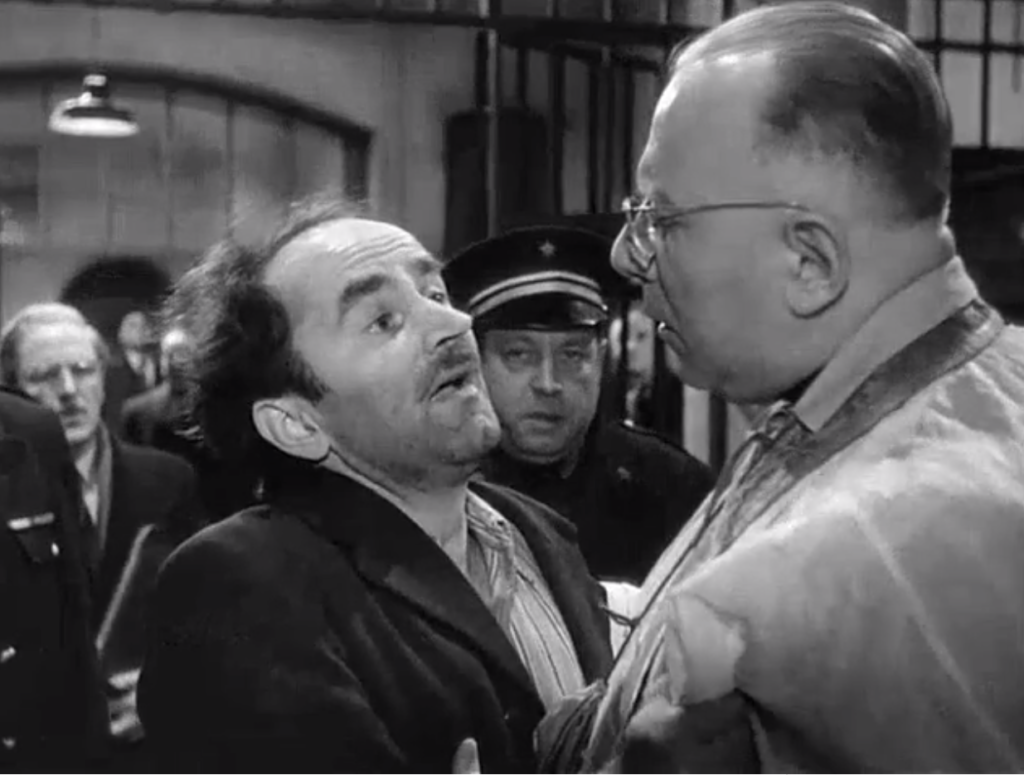
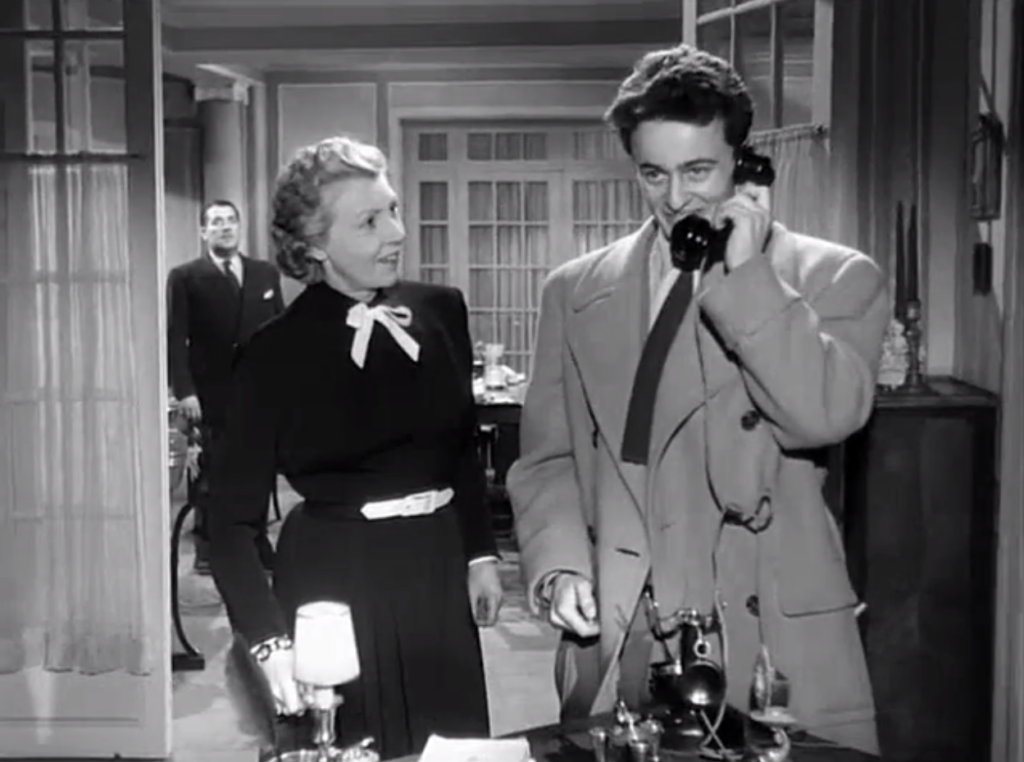
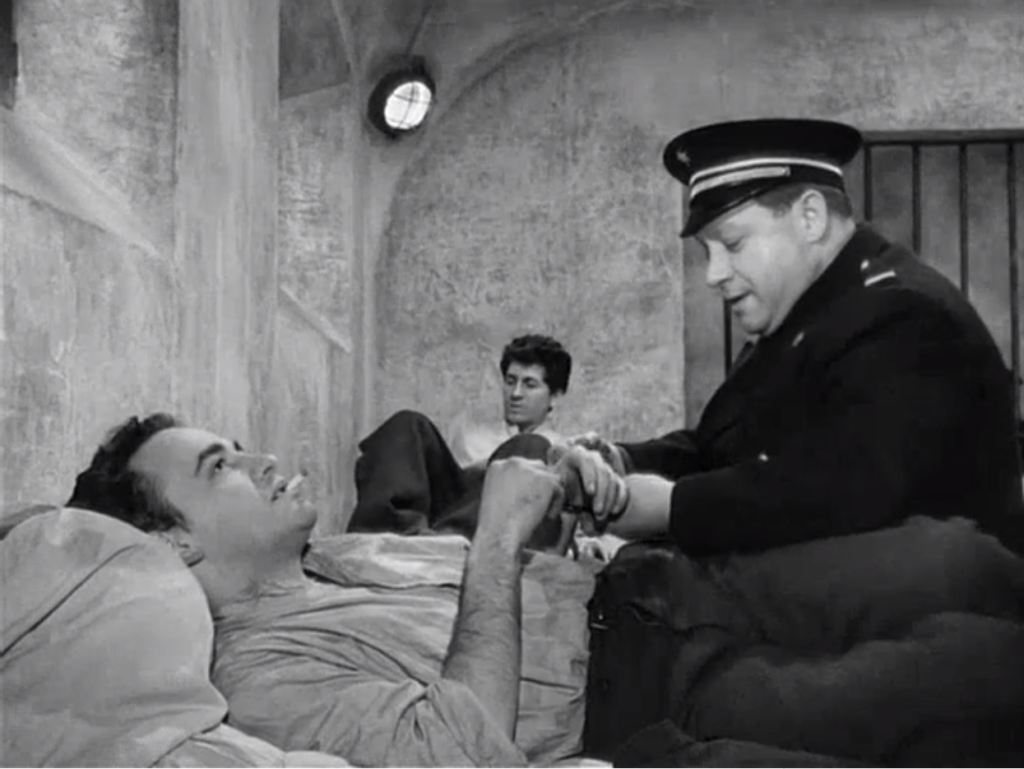
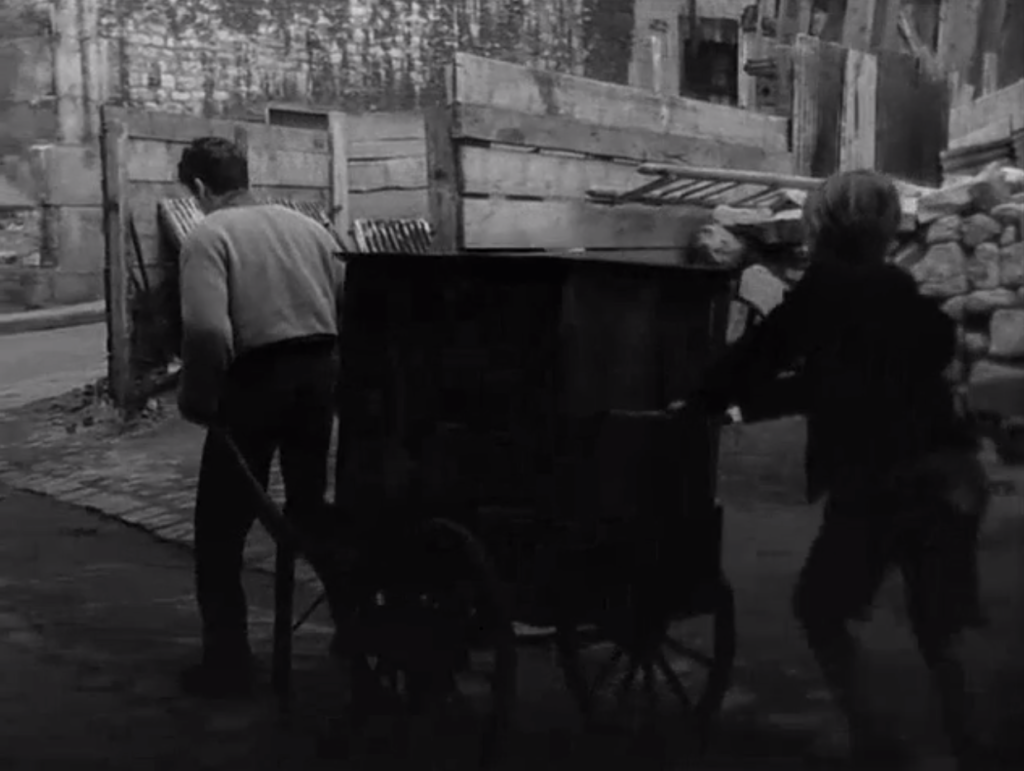
One thought on “We Are All Murderers (1952)”
First viewing. Not must-see – though those with interest in the subject matter will want to check it out.
While the salient points in the assessment make the film of interest, the overall impression I was left with is that the film seems to be taking on too much for one film. As a result, there’s a certain meandering quality which, at times, causes the film to seem like it’s all over the place. I think it may have been more effective if it had zeroed in on one representative case (Mouloudji’s) and examine that one more thoroughly. (It’s the one we come to know the most about anyway.)
I didn’t feel that the time spent on the religious aspect was all that illuminating (it seems standard stuff) but the attitude displayed by the court certainly reveals that a more thorough examination of the death penalty was indeed necessary.